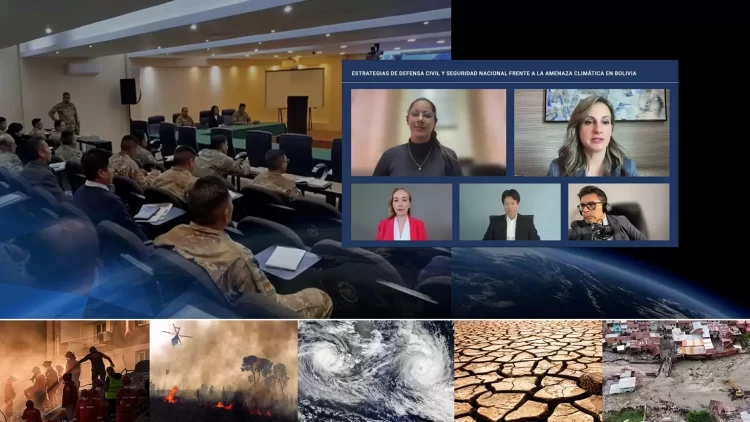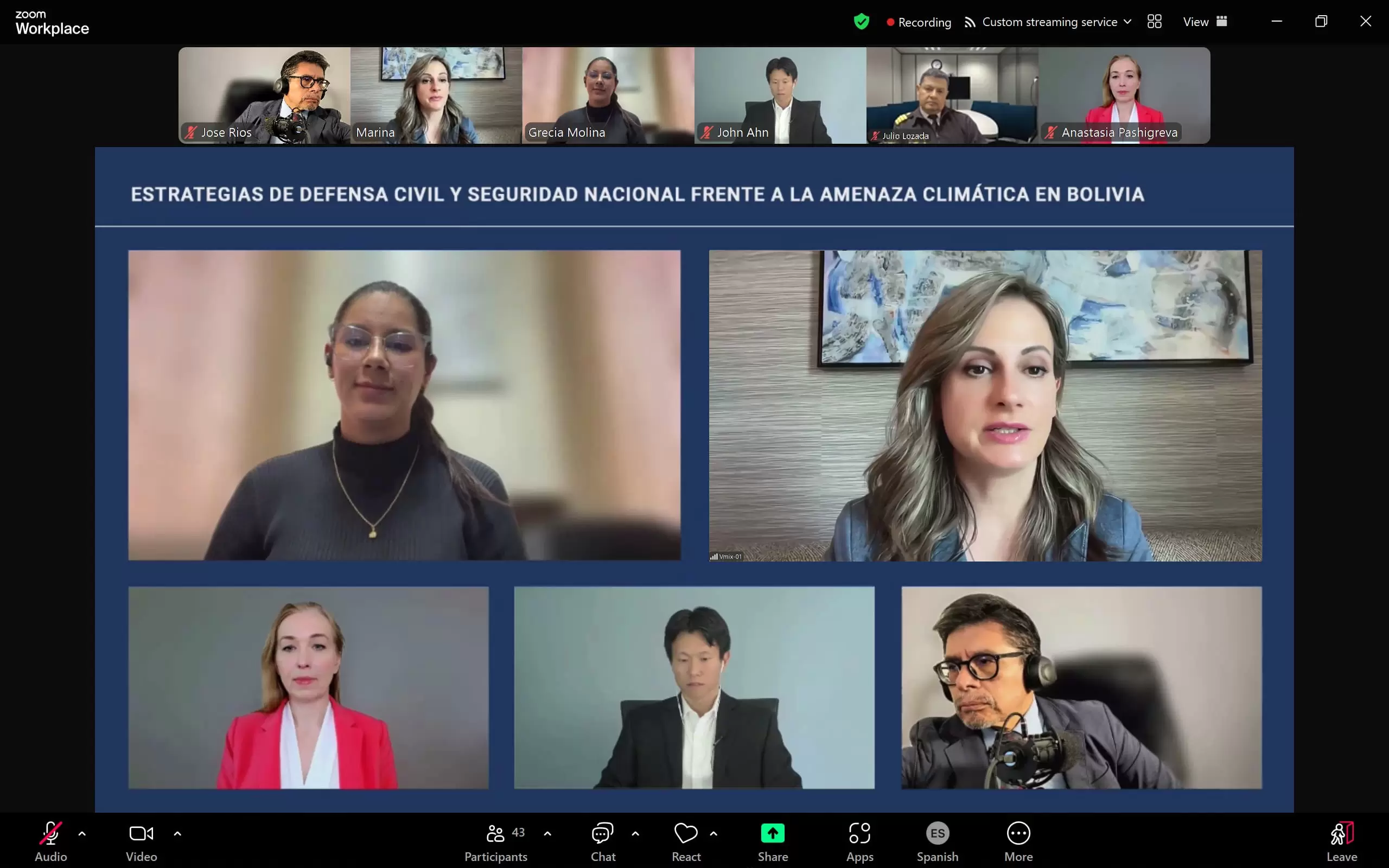The seminar was promoted by the Vice Ministry of Civil Defense of the Plurinational State of Bolivia, ALLATRA IPM, and Creative Society, as part of an inter-institutional cooperation initiative aimed at strengthening knowledge and response capacity to emergencies and natural disasters.
La Paz, April 23, 2025 – With the aim of strengthening the country’s response capacity to geodynamic and climate risks, the intensive seminar «Civil Defense and National Security Strategies Against the Climate Threat in Bolivia» concluded. The event, aimed at high-ranking military commanders and officers from the three branches of the Armed Forces, as well as specialized civil defense and emergency management units, featured the participation of key institutions such as the Joint Command of the Armed Forces and the General Staff, responsible for coordinating joint operations.
The seminar was promoted by the Vice Ministry of Civil Defense of the Plurinational State of Bolivia, ALLATRA IPM, and Creative Society, as part of an inter-institutional cooperation initiative aimed at strengthening knowledge and response capacity to emergencies and natural disasters. The event provided knowledge, tools, and key strategies for crisis prevention, mitigation, and management, with the goal of improving inter-institutional coordination and reinforcing the country’s resilience against climate threats. Specialized information was also shared on the use of advanced technologies to mitigate the effects of climate change.
Over the four-day sessions, threats such as floods, droughts, landslides, atmospheric anomalies, wildfires, and earthquakes were analyzed, examining their causes, evolution, and impact on Bolivia’s strategic security. It was warned that their increasing frequency and magnitude compromise national security. In response, mitigation measures were proposed, focusing on the protection of critical systems, livelihoods, defense capacities, emergency operations, and the strengthening of intergovernmental coordination.
In the global context, cross-cutting issues related to the United Nations system were addressed, such as the Security Council and the Intergovernmental Panel on Climate Change. Among the most urgent risks, the detection of an ascending magmatic plume in Siberia was highlighted—a phenomenon associated with the non-anthropogenic cause of the current climate and geodynamic change, representing a potential threat comparable to the Permian-Triassic mass extinction event, in the event of a large-scale rupture.
Anthropogenic factors aggravating global warming were also addressed, particularly the saturation of micro- and nanoplastics in the oceans, which nullifies their thermal conductivity (natural cooling capacity). Furthermore, it was warned that these particles enter the human body, causing cellular damage, DNA disruption, immune system suppression, hormonal imbalances, and an increased risk of cancer, neurodegeneration, and cardiovascular diseases.
Experts emphasized that there is still a window of opportunity to apply advanced technological solutions. Among these, they highlighted controlled degassing of the Siberian plume and the global implementation of atmospheric water generators for the progressive filtration of micro- and nanoplastics, which would help mitigate the impacts of climate change.
International experts in climate change, geodynamics, and climate security delivered presentations during the event. José Ríos, Seminar Coordinator, warned that «Bolivia faces growing national security challenges due to geodynamic and climate threats.»
The event featured the participation of officials from various regions of the country and was moderated by Eng. Grecia Paola Molina, Regional Coordinator of Creative Society. Maryna Ovtsynova, President of ALLATRA IPM and expert in climate diplomacy—recognized for her intervention at the United Nations COP 29—also participated actively.
This seminar reaffirms Bolivia’s commitment to strengthening its emergency preparedness and response capabilities, promoting greater cooperation and coordination between state institutions and international actors in the fight against natural disasters and climate change. It also consolidates its position internationally as an active country in the formulation, promotion, and advocacy of viable, real, and sustainable solutions to the climate threat.




















